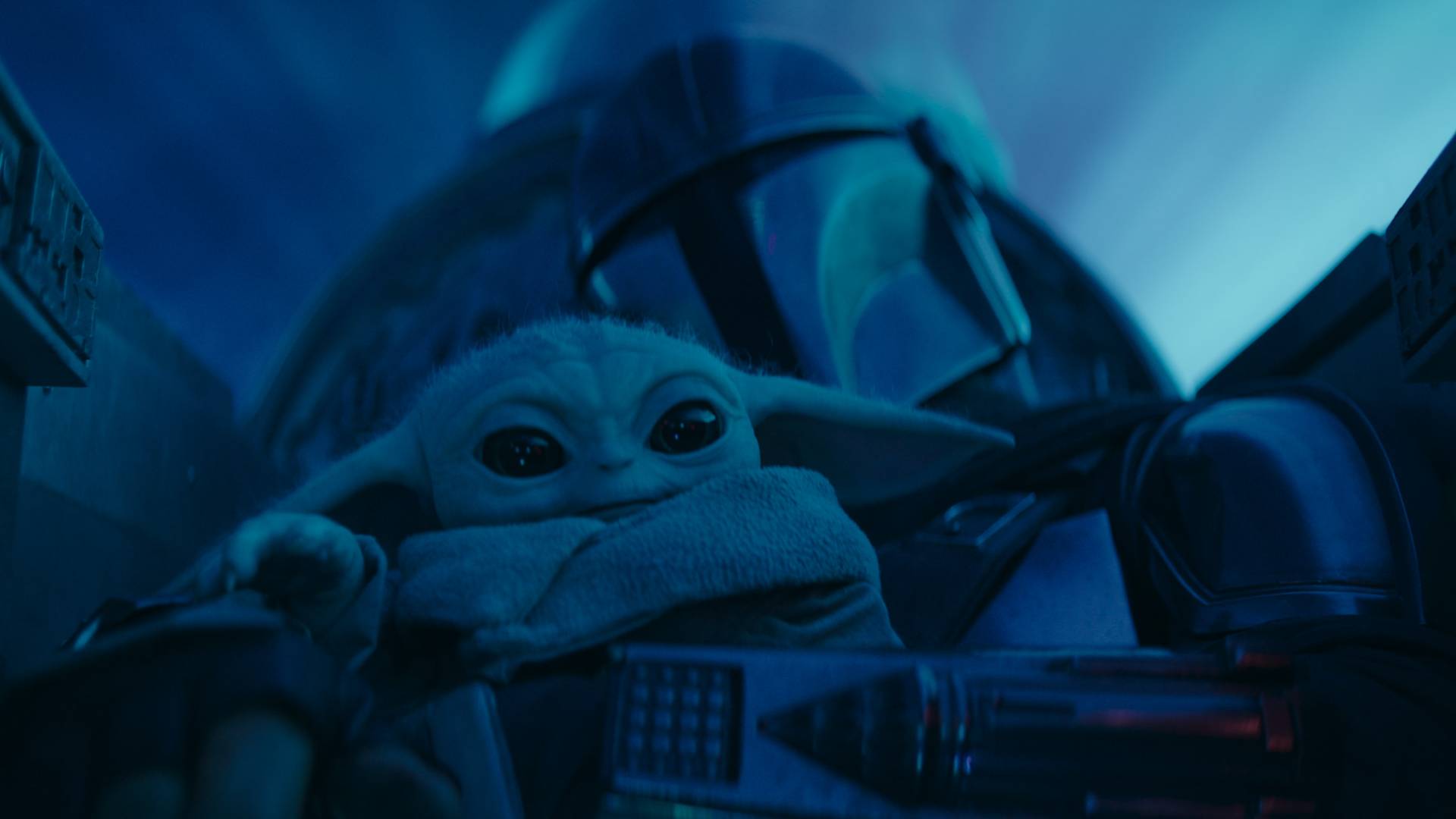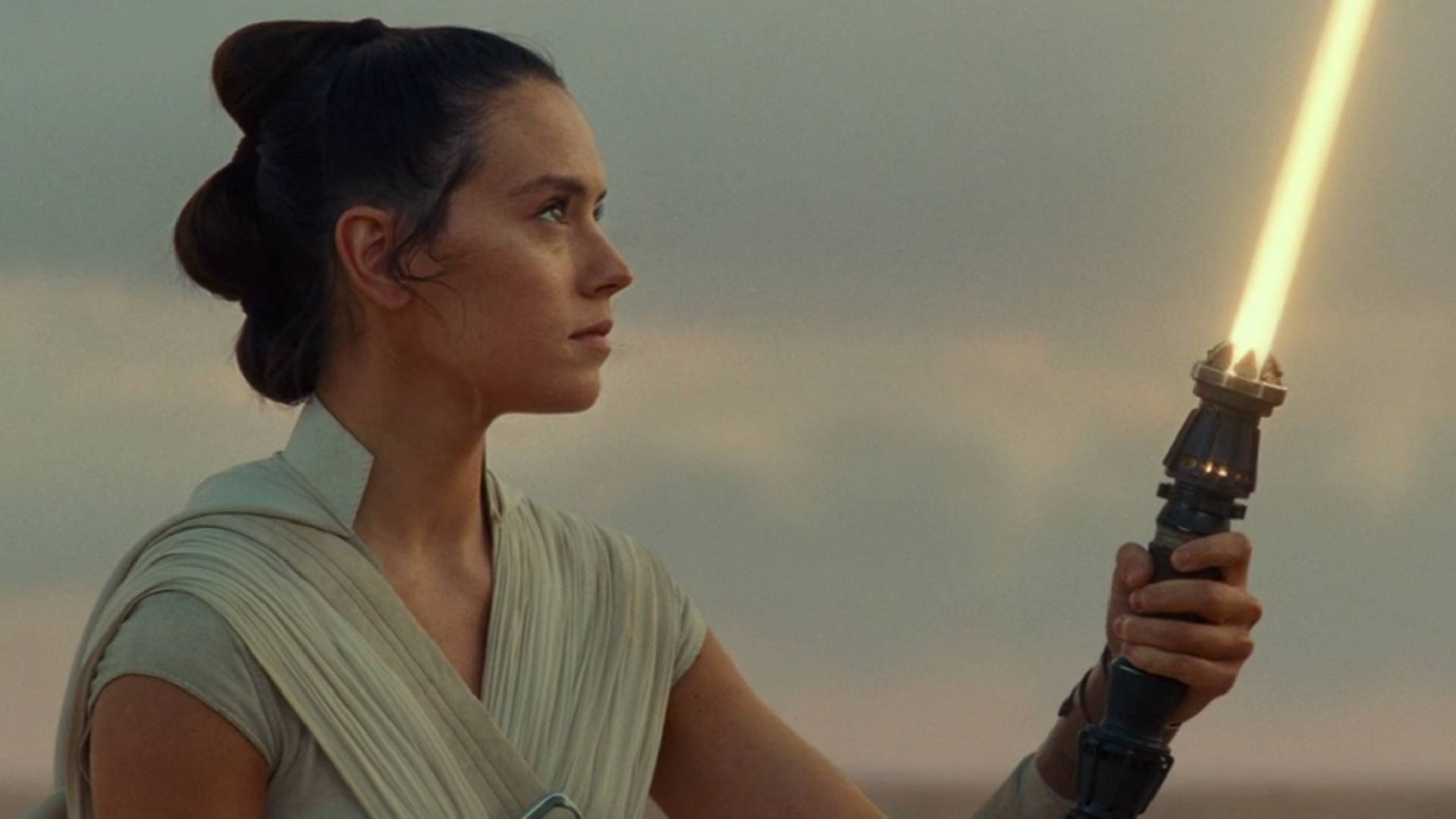
"Then I will adopt him as my own." These few words from Din Djarin, at last officially claiming baby Grogu as his son in The Mandalorian season 3 finale, don't just serve to melt hearts around the world. They also act as a poignant culmination of Mando and Baby Yoda's arc in the show, which saw the duo transition from bounty hunter and target to father and son. Of course, Mando has unofficially been Grogu's dad since season 1, but the season 3 finale sees the Child take Din's name in a ceremonial cementing of their bond. It also continues the evolution of Star Wars's family themes, which are moving to deeper, more complex waters.
It's no secret that Star Wars has always been about family – it's not called the Skywalker Saga for nothing. The nine mainline movies revolve around the galaxy's most infamous brood, and even Rey turned out to be part of a legendary bloodline herself when The Rise of Skywalker revealed her as a Palpatine.
Ultimately, though, Rey declared herself a Skywalker. It's a moment that has been unfairly derided since the film's release, but I've always seen it as a particularly moving assertion of a found family. Rey has few memories of her parents and – for obvious reasons – wants nothing to do with her grandfather or his legacy, so she turns her back on her toxic heritage and instead embraces the people she sees as her true kin, driven home by Force ghosts Luke and Leia watching over her from afar with smiles on their faces.
It's a baton that The Mandalorian well and truly picked up from the beginning. Mandalorian culture is already built on a bedrock of found family, to the point that it's literally in the name: foundlings. Din Djarin and Grogu swiftly became a clan of two in the debut season, but Mando choosing to formally adopt Grogu now signals that he has accepted his place in the Child's life not as a caretaker, but as a father. It's especially emotional considering Din was orphaned young and Grogu never knew his birth family, then lost his second home in Order 66. The Child's choice to return to Mando rather than continue his Jedi training in The Book of Boba Fett is extra significant; like Rey, both Grogu and Din have discovered and claimed their true family for themselves.
Baby Yoda's experience with his found family could end up helping to chart a course for the future of the Jedi, too. The Order of old was not big on familial attachments, a tradition Luke upheld in his time with Grogu. If being a Jedi is still in Grogu's future, his love for Mando is something he could take with him, moving the Jedi past the restriction on attachments once and for all. It would make complete sense to see this play out in the new movie about Rey, considering the similarity in her and Grogu's experiences. Rey will be rebuilding the Jedi Order when we catch up with her again, so a fresh start is on the cards: and who better to help her than a grown-up Grogu?
New horizons

Star Wars, then, is broadening its definition of family as the saga continues to move through its post-Rise of Skywalker era. That's not to say that the original movies overlooked non-biological bonds – Luke, Leia, Han, and Chewie have always felt like a little family to me (granted, Luke and Leia are siblings, but they didn't always know that), and Obi-Wan saw Anakin as his brother, while Anakin calls him the closest thing he has to a father. But, lately, families that don't share blood have been coming even more to the forefront. It's something touched on in last year's Obi-Wan Kenobi and its adopted families, too; Little Leia is desperate to know about her mysterious mother and father, and when Obi-Wan finally talks to her about them, she makes it clear that Bail and Breha Organa are just as much her parents as Anakin and Padmé. Just look at how determinedly Aunt Beru and Uncle Owen defended young Luke from Reva, too, with Owen insisting "he is my own" when Reva questioned him.
It's a refreshingly modern stance to take and is something many can relate to – not everyone has a loving biological family, but almost everyone understands what it is to have friends so close they feel like siblings, or mentors who feel like parents. On a personal level, it's something I love seeing as someone with a huge stepfamily, which doesn't feel any less my own just because we don't share blood.
That's not to say I don't love Star Wars's more traditional exploration of family, too. The Skywalkers have always been my favorite part of Star Wars and there's nothing I find more emotionally compelling than the complex relationship between Luke and his father in the original trilogy. But Star Wars making room for different types of families is a wonderful thing, and it's why I'm crossing my fingers that Rey's movie won't retcon her identity as a Skywalker – and that Grogu and Din Djarin's beautiful bond will continue to blossom in The Mandalorian season 4 and beyond.
You can get ready for the next live-action Star Wars show with our guide on what to watch before Ahsoka, or see everything else coming soon from the galaxy far, far away with our roundup of all the upcoming Star Wars movies and Disney Plus TV shows.







